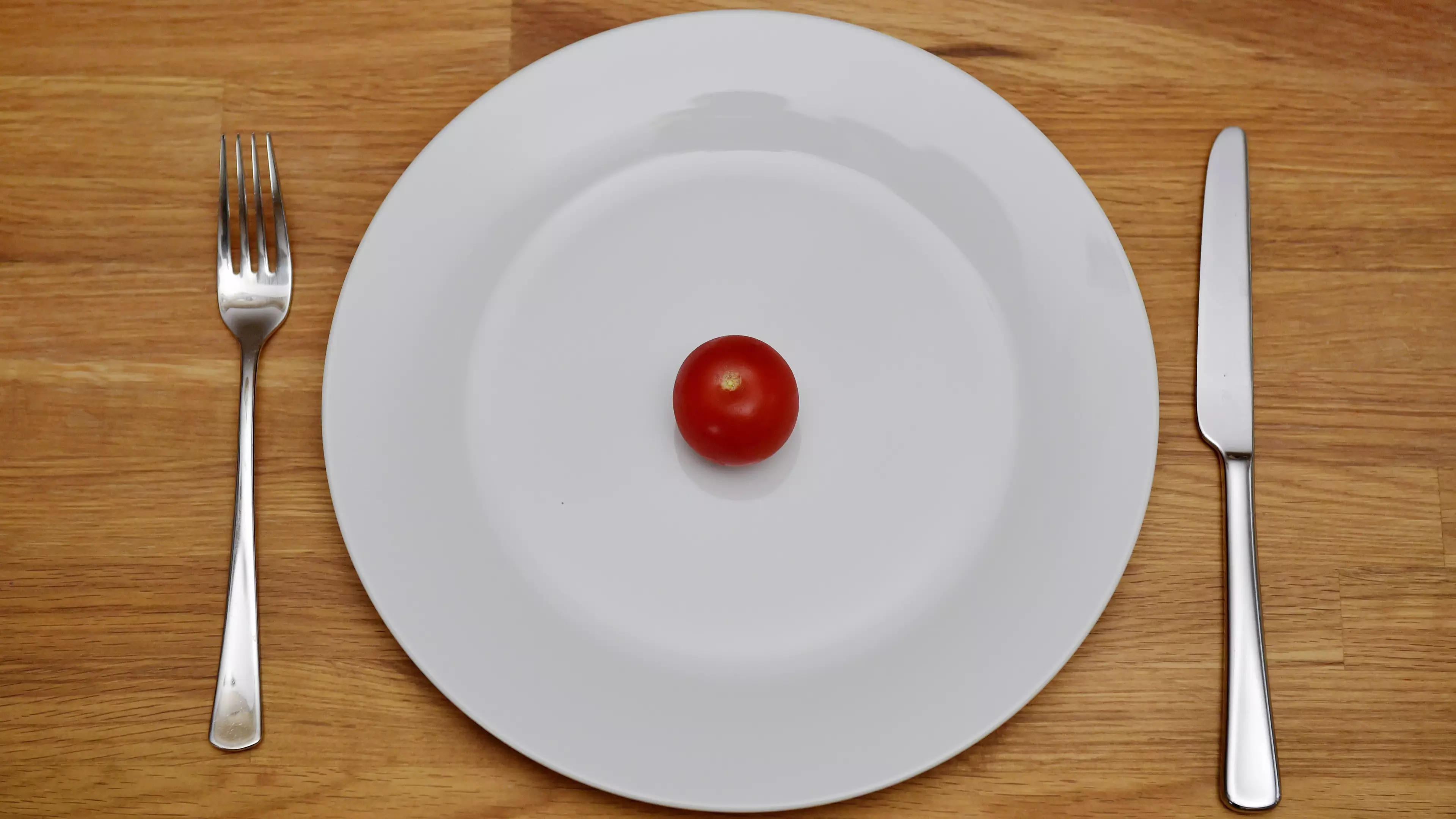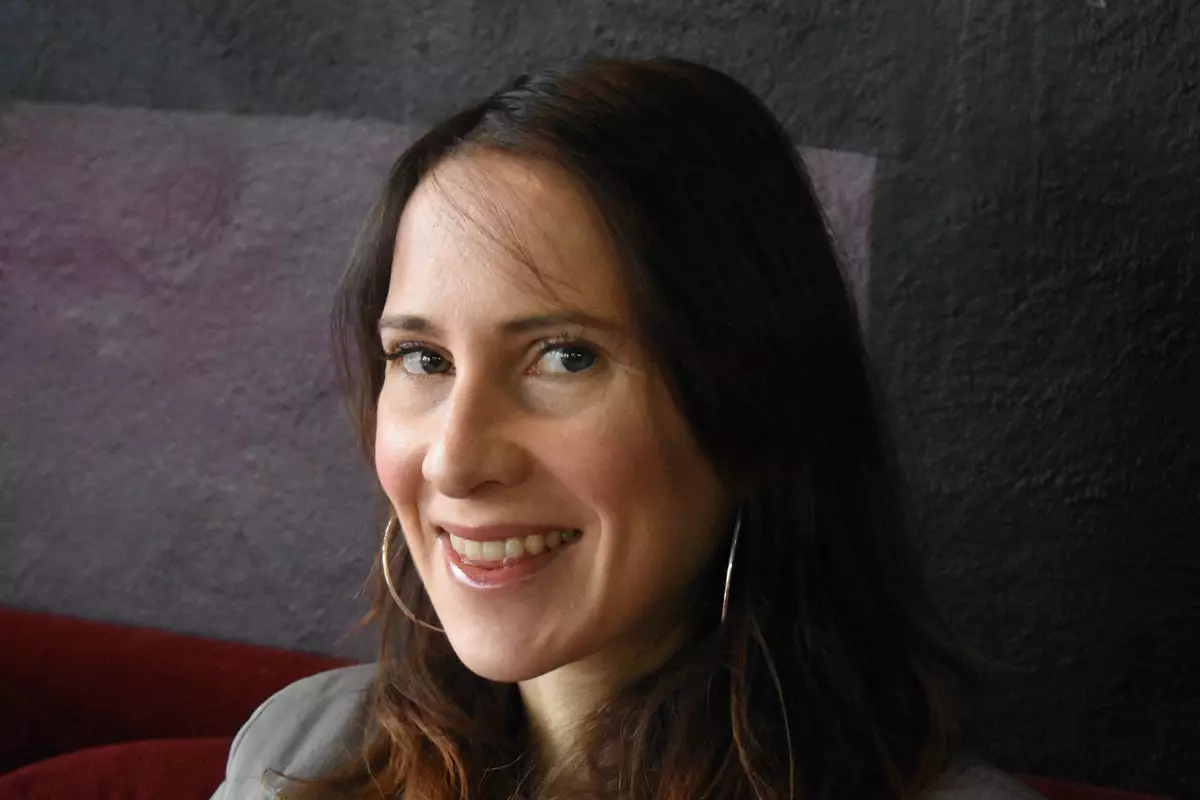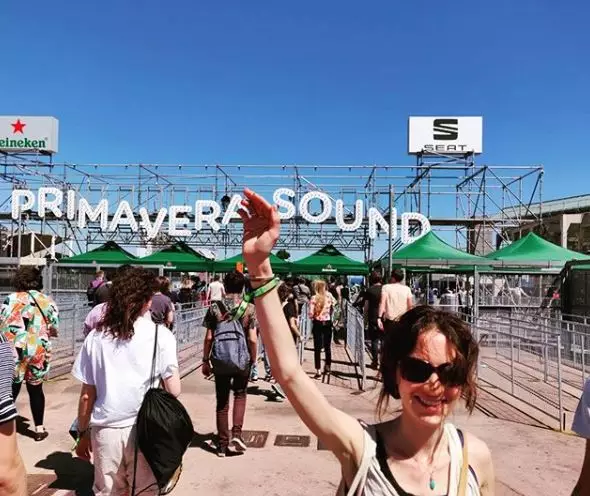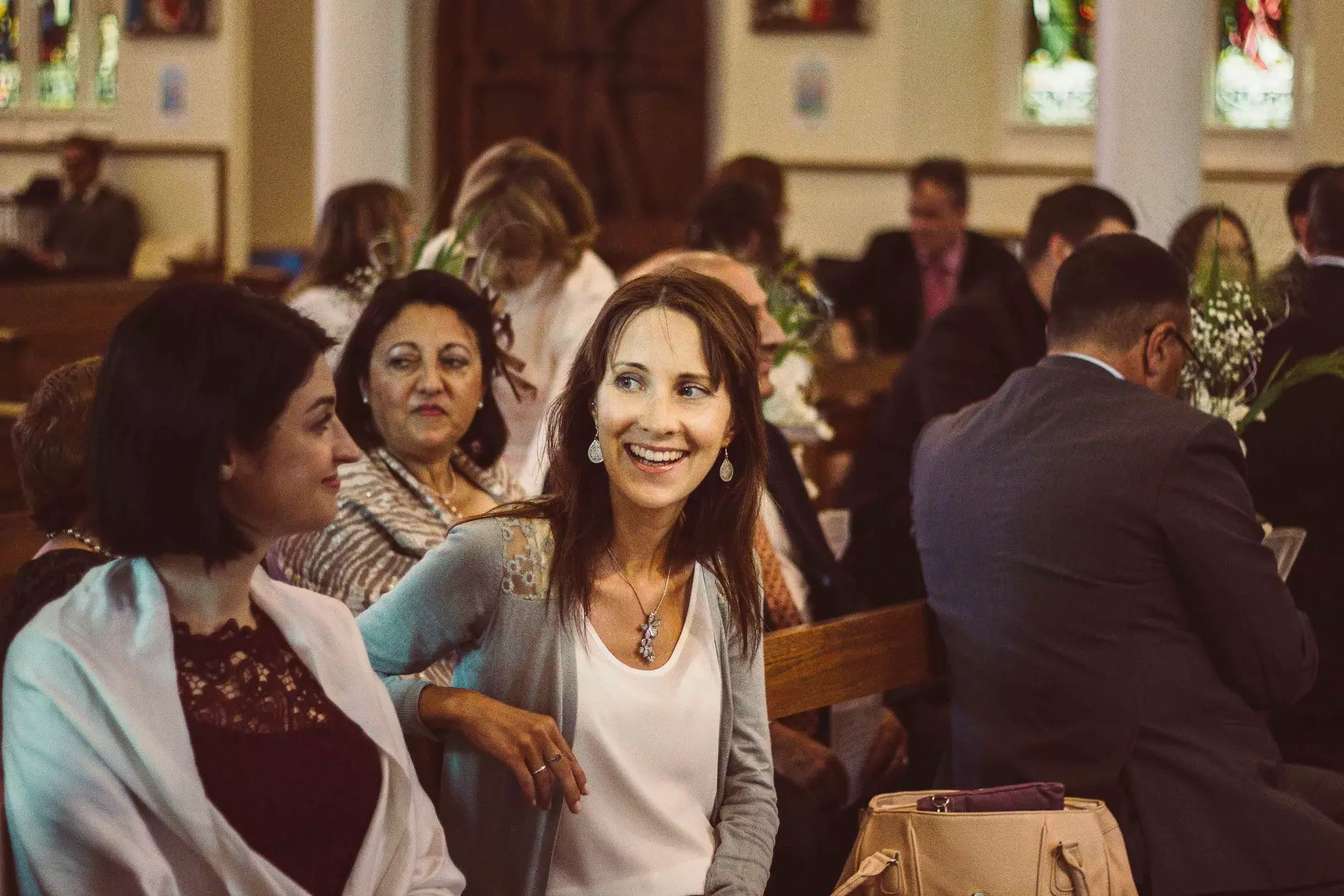
Words by Francesca Baker, 33, from Kent
When I saw that calorie labels are set to be introduced in restaurants as part of the government's new obesity plan, my heart did a little skip of delight. But then my rational side kicked in, and I felt sick.
Why such complicated feelings towards something that's designed to promote healthy eating?
Advert
The answer is that I have anorexia nervosa and have done for 15 years. Since the age of 18 I've been perpetually in recovery, trying hard to fight an illness that is widely considered the biggest killer of any psychiatric disorder. And in a world obsessed with calories and diets and losing weight, it's like living in a nightmare.

It all started in my first year of university. I'd put on a few pounds from too many pints and pizzas, and decided to lose it. But combine a diet with chronically low self-esteem, a perfectionist disposition and some predisposed genetic tendencies, and you have the perfect breeding ground for an eating disorder.
There have been some terrifying lows. I spent 15 months in a hospital in London. I once cried over a bite of a grape. I've missed parties and gigs, preferring to go to the gym. I overdosed on sleeping pills, thinking they were laxatives, but was too ashamed to call anyone so left a note for whoever found me.
Advert
Meltdowns in the supermarket are not uncommon. I've passed out too many times, and have bruises and scars all over me where my bones rub on my clothes or my bags. I have osteoporosis, and heart problems.
But there have also been good times. I'm very fortunate to live with my parents, as without them I would probably be dead. My meals are regimented, and samey, but they are there, and I'm starting to be more flexible.
A couple of years ago I had a piece of cake at my younger brother's wedding, and that felt like a massive achievement. And (before lockdown) I had started to try eating out at restaurants.

I always choose a meal based on the number of calories in it. It's not cool and it's not clever, I'm working hard to challenge that. So I really don't need a menu screaming at me exactly what a dish contains, and shaming me for picking anything other than a limp lettuce leaf.
Advert
I want to make decisions based on what I like, what will taste good, what will enable me to participate in the fun and social occasion that eating out should be.
The worst part is, that this isn't just a case of providing people with information to make their own choices. All of these guidelines come dripping with judgement. From the traffic light system where red is bad, to the labelling of all fat as terrible (ever eaten an avocado? Bloody delicious, and good for you too), and the idea that low-calorie equals good... it all smacks of shame.
The idea that you are somehow a better, cleaner, more valuable person because you eschewed the burger tonight is everything that is wrong with basing a food system on values and assumptions, rather than science.
If we're talking about science, then a calorie is a unit of energy. You know, that thing that enables you to live a bold and bright life, full of fun and activity. It's not a bad thing.

You need calories just to live - the body burns energy breathing, functioning, and thinking. A healthy diet is a diet that fuels you for the life you want to live - and you can make that life as big and bold and vibrant as you like.
Advert
Menus will also say how long and doing which activity it will take you to burn off the calories you eat at the meal. Also rubbish, because every body is different, and a 90kg muscly rugby player will burn off calories far quicker than puny little me.
But that won't stop me staring at the menu thinking about how quickly I can get out and get exercising, as they are encouraging me to do.
There are over two million people with diagnosed eating disorders in the UK, and many more with a disordered relationship with food. Obesity is an issue, but creating a culture of shame and abuse isn't the answer.
Over the last few years messaging around food has become more and more targeted, and anti-obesity marketing more prevalent, yet our weight as a nation isn't decreasing. Instead eating disorders are rising, mental health problems increasing, and access to good quality food being a more divisive issue.
Advert
If the government really wants a healthier nation - and note I say healthier, not thinner - they need to think about creating a society where everyone has access to a varied and healthy diet. There's a reason that obesity rates correlate with low income, and it's not because people are stupid.

It's because fresh food costs more, and some people can't afford to pay that premium. They need to make it normal to move your body in ways that are joyful to you, by improving pedestrian routes, and encouraging activity in schools.
We should be taught at school how to cook, and workplaces should have facilities for us to heat up a meal, so we don't have to go to a fast food joint every day (although if we want to sometimes, that's dead cool as well). They need to make being healthy a part of life.
Eating out should be a part of that life. It shouldn't be something to feel guilty about. After a fun time with family, a catch up with friends, a date with a lover, you shouldn't be wondering how long it will take you to burn off what you have eaten.
You shouldn't feel bad for choosing some food that you love. Food is one of the joys of life, as well as something we need to survive.
For many people like me, that relationship is fraught and difficult. We don't need the government issuing guidelines to make it that much harder.
If you, or anyone you know, has been affected by an eating disorder, you can find help and support at eating disorder charity, Beat.